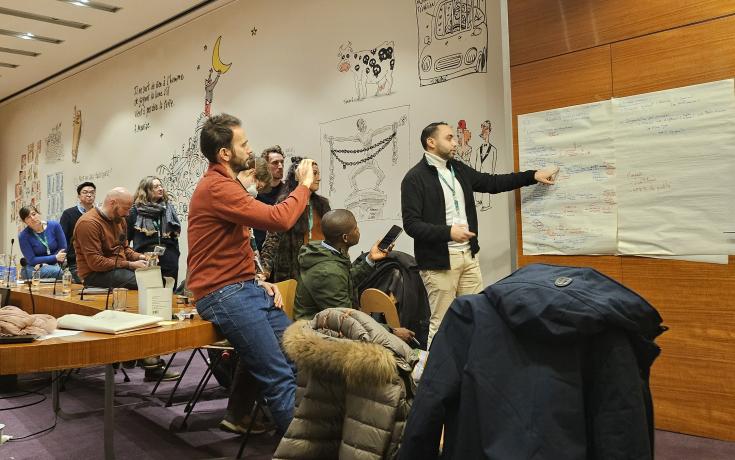CAPACities: Mapping energy use in Paris’s tertiary sector
In the context of its new Climate Plan adopted at the end of 2024, the City of Paris has committed to reducing energy consumption by 50% by 2050. While the Paris Climate Agency is already playing a key role in supporting the residential sector, energy use in the tertiary sector remains poorly understood, and professionals often lack adequate support to improve energy efficiency and promote energy sobriety.
The tertiary sector—which includes offices, shops, public administrations, and educational institutions—is currently the largest energy consumer in Paris, representing 54% of the city's total energy use (28.5 TWh in 2022). Unlike other sectors such as residential (-11%), industrial (-44%), and road transport (-32%), energy consumption in the tertiary sector has increased by 4% since 2004. The 2024 COP on Ecological Planning for the Île-de-France region has confirmed the importance of this sector in achieving energy sobriety, building insulation improvements, and boiler replacement, with an estimated 20% potential reduction in energy use.
Within this framework, the new CAPACities project aims to better understand energy consumption—particularly electricity and gas—across small tertiary buildings (less than 1,000 m²) in Paris. These buildings are often difficult to identify and analyse, despite being subject to the Eco Energy Tertiary Decree, which sets progressive energy reduction targets for tertiary buildings.
A visualisation tool for local decision-makers
The project includes the development of a visualisation tool to map and monitor energy consumption at the level of neighbourhood councils and districts. This tool will support decision-making by helping elected officials and stakeholders target their awareness campaigns and support actions towards the most energy-intensive sub-sectors.
CAPACities also represents an opportunity for Paris to contribute to the creation of a broader energy monitoring portal for the tertiary sector, as foreseen in the Climate Plan. The project is coordinated by the Centre for Studies and Expertise on Risks, the Environment, Mobility and Urban Planning (CEREMA), and brings together various French local authorities, companies, and institutional partners over a one-year period.
In Paris, the project is led by the Department for Ecological and Climate Transition – Energy Efficiency and Savings Division, and is expected to serve as a proof of concept to support local policy decisions and enable targeted actions, such as awareness-raising initiatives, SME support desks, and outreach campaigns.

